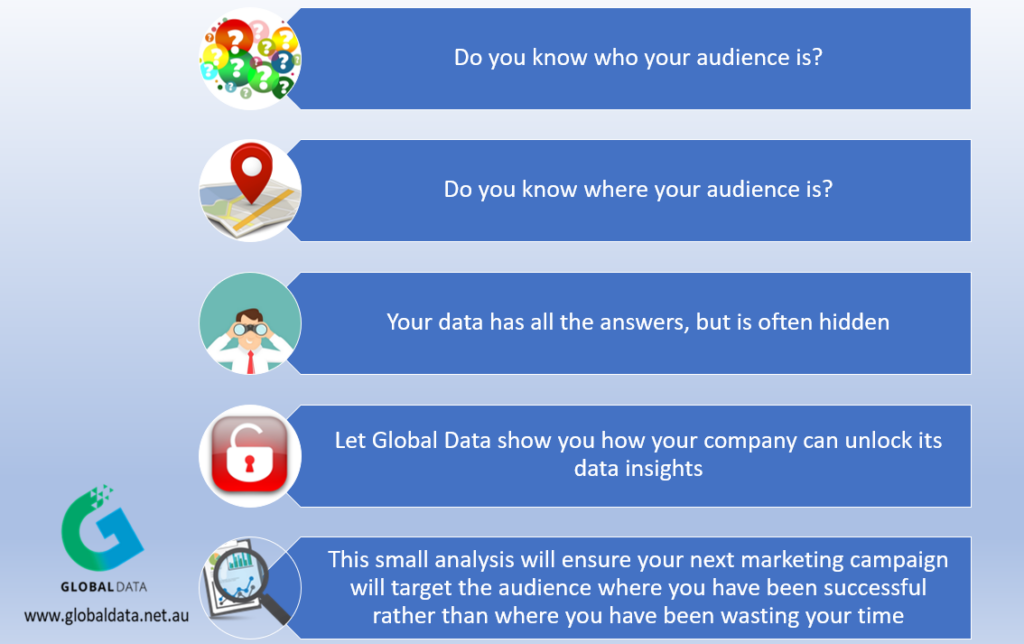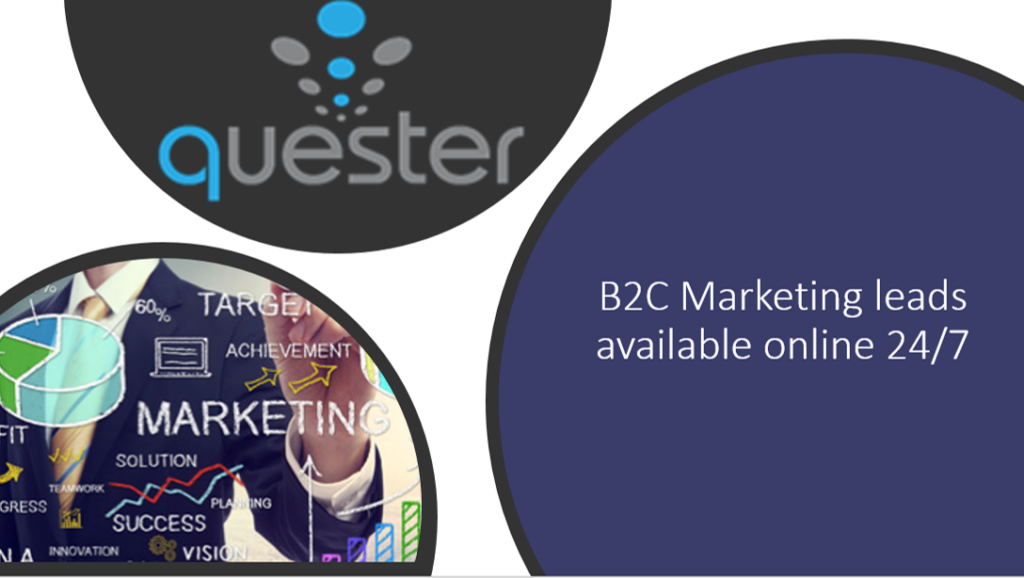In any business, data is essential to making informed decisions about where to allocate your marketing efforts. By understanding which marketing channels are most effective at reaching your target market, you can create a more efficient and cost-effective marketing strategy.
Additionally, data can help open up new audiences that you otherwise would not have had the capacity to communicate with. It will help you track your marketing progress and measure your return on investment. By leveraging data, you can ensure that your marketing strategy is more successful and hopefully secure more sales opportunities.
How data can help you plan your marketing strategy
In order to create an effective marketing strategy, you need to have a clear understanding of who your target audience is and what they want. You also need to know what kind of message will resonate with them. Data can help you gain this understanding by providing insights into who your target audience is, what they are interested in, and how they prefer to receive information. It can be as simple as targeting a specific age or gender, but you should always know who your target audience is when acquiring marketing data.
With this knowledge, you can develop a marketing strategy that is more likely to reach and engage your target audience, which can lead to more sales and conversions.
Without data, you’re flying blind. Sure, you might have a hunch that certain marketing activities are working, but you won’t know for sure unless you measure the results. Data gives you the ability to track your performance over time and make adjustments as needed, based on your audience you are targeting.
If you want to be successful with your marketing efforts, it’s important to purchase or collect marketing data and use it to influence your decisions. Here are a few tips on how to do that:
1. Know Your Goal
Before you start collecting marketing data, it’s important to know what you want to achieve with your marketing strategy. What are your business objectives? What does success look like to you? The answers to these questions are gathered from the right analytics tools. Quester, gives you this ability to target a preferred consumer audience, select a desired campaign type and download Australian marketing data lists in minutes. You can get this head start instantly.
2. Measure Your Results
It’s easy to get caught up in the excitement of launching a fresh marketing campaign, but it’s important to track your results even if it’s just for a brief period of time. Small (put your toe in the water) steps, should be launched first.
3. Compare Results and Adjust
Based on the results of your marketing campaign, you may want to make some adjustments. If your company is seeing increased sales thanks to a new online product launch, you may want to invest or direct more money into online advertising in the future.
4. Repeat Steps 2 and 3 to Make More Adjustments
After making a few adjustments based on the results of your marketing campaign, you should measure your results again. Continue to repeat these steps as needed until you achieve the goals that you set out in step 1.
The benefits of using data in marketing:
There are many benefits to using data in marketing. Perhaps the most obvious benefit is that data can help you target your marketing efforts more effectively and very quickly. By understanding who your customers are and what they want, you can more easily create content and campaigns that will resonate with the right data audience, not the audience unlikely to be interested in your products or services..
In addition to helping you target your marketing more effectively, data can also help you track the results of your efforts. This information can be used to fine-tune your approach, ensuring that you are getting the most out of your marketing budget.
Finally, data can help you build new audience relationships that you may never know had existed earlier. Sometimes, data helps uncover new geographical hot-spot clusters, based on new consumer demographics.
How to use data to create a marketing strategy:
In order to create an effective marketing strategy, businesses need to make use of data in order to understand their target audience. This data can be gathered through market research, surveys, customer feedback, and other methods. Once businesses have a good understanding of who their target audience is, they can then create a marketing strategy that is tailored to that audience and purchase more of this targeted data when needed.
One of the most important things to keep in mind when using data to create a marketing strategy is to ensure that the data is accurate and up to date. Additionally, businesses need to be sure that they are looking at the right data in order to make the best decisions for their company. For example, if a business is selling products online, they will need to look at data related to web traffic and online sales. If a business is looking to grow their customer base, they may choose to use, Quester to acquire new or additional top-up data. Quester offers the perfect solution and the ability to target your audience both geographically and demographically anywhere in Australia. With our innovative technology, you can laser-focus your marketing efforts for maximum impact and conversions on your preferred targeted audience.
Zero in on your desired audience by efficiently targeting a preferred age, gender, or wealth group. Discover how to quickly and easily create an audience that is primed for your products or services. Target homeowners, renters and so much more quickly and easily with Quester.
The advantages of using data to plan your marketing strategy:
When it comes to marketing, using data can be extremely helpful in creating a strategy that will actually work. Too often, businesses make decisions based on gut feeling or personal preference instead of what the data says would be most effective. As a result, they end up wasting time and money on marketing tactics that don’t produce results.
Marketing data can help you determine which channels are most effective for reaching your target audience, what type of content is most likely to resonate with them, and when is the best time to reach them. Without marketing data, it’s all too easy to make assumptions about your customers that may not be accurate, and as a result, your marketing efforts will miss the mark.
Additionally, data can help you track progress and measure results so you can see what’s working and what isn’t.
The disadvantages of not using data in marketing:
Not using data in marketing can be detrimental to a company for a few reasons.
First, without data, it’s difficult to track what marketing strategies are working and which ones aren’t. This makes it hard to know where to allocate resources and how to improve campaigns.
Additionally, data can help identify opportunities that the company may not have been aware of otherwise. What gender is purchasing our products? What is their average age? What is their income or education levels? All of these data insights have impact.
Finally, using data allows for more targeted marketing, which leads to better conversion results.
Conclusion
As your business grows, you’ll need to rely on data to help you make strategic marketing decisions. Data can help you understand your target audience, track your marketing performance, and make adjustments to improve your results.
To get started, consider using Quester to gather insights about your customers. Once you have a good understanding of your data, you can start planning your marketing strategy.
Here are a few tips for using data to plan your marketing strategy:
1. Set realistic goals based on your target audience and budget.
2. Experiment with different marketing channels and tactics to see what works best for your business.
3. Use data-driven decision making to constantly optimize and improve your results.
4. Continually track your performance to identify new opportunities. This will help you maximize your return on investment (ROI). If you want to learn more about how Quester can help you identify your marketing data and make better marketing decisions, contact us today to request a demonstration or to find out more information.



